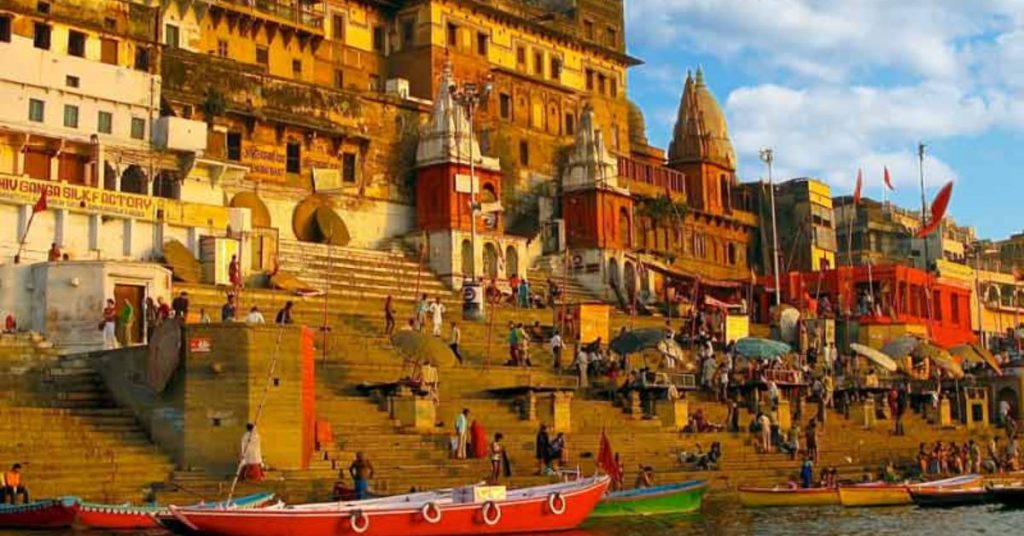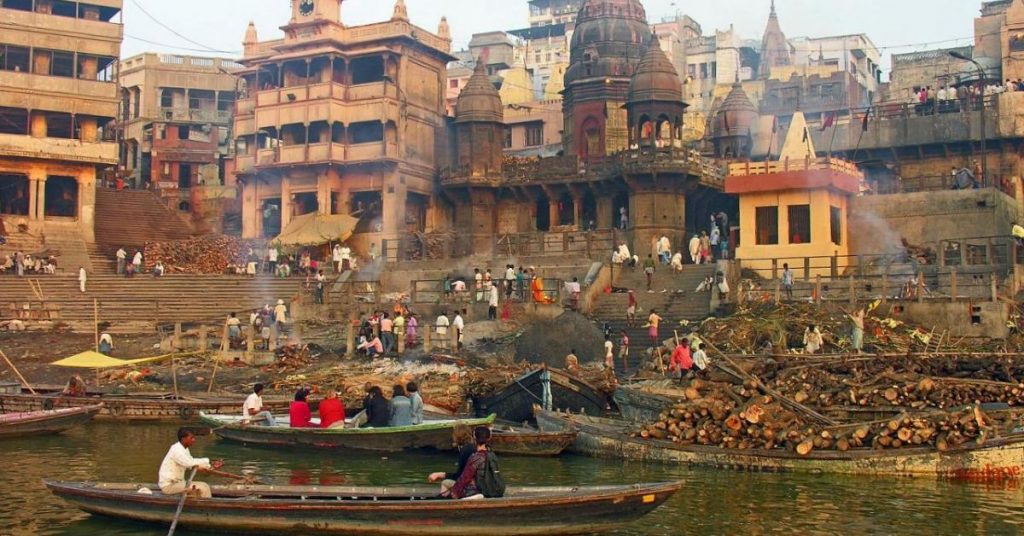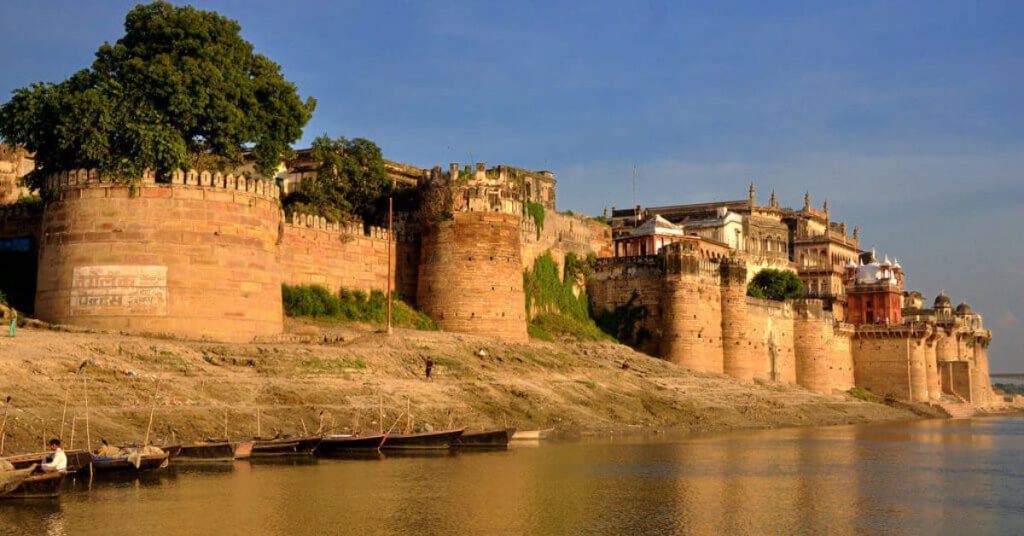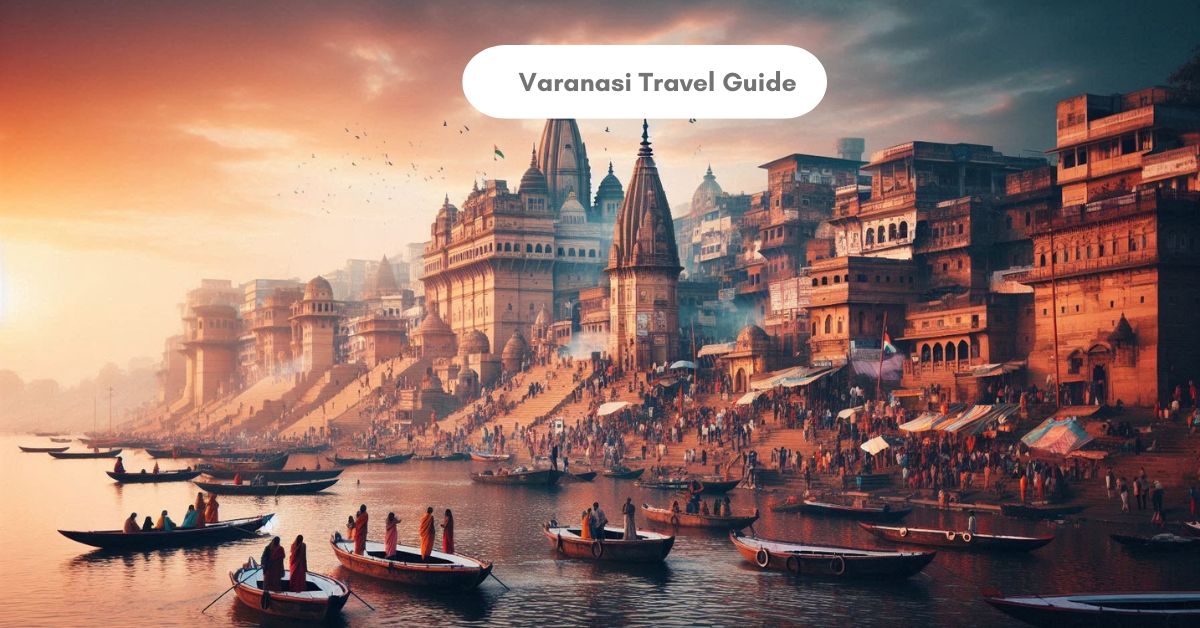Varanasi, also known as Kashi or Benares, is a city that pulsates with spiritual energy and historical significance. This ancient city, situated on the banks of the Ganges River, is one of the holiest places in India. Pilgrims and travelers alike are drawn to its mystical aura, vibrant culture, and the promise of spiritual enlightenment. Whether you’re planning a pilgrimage or a cultural exploration, this comprehensive Varanasi travel guide will help you navigate the wonders of this timeless city.
The Spiritual Significance of Varanasi
Varanasi is revered as the spiritual capital of India. It is believed to be the abode of Lord Shiva, and the Ganges River, which flows through the city, is considered a sacred purifier of sins. The city’s spiritual atmosphere is evident in its countless temples, ghats, and the continuous flow of pilgrims performing rituals.
Iconic Temples to Visit
One cannot visit Varanasi without paying homage to its iconic temples. The Kashi Vishwanath Temple, dedicated to Lord Shiva, is a must-visit. It is one of the twelve Jyotirlingas and holds immense significance for Hindus. The temple’s golden spire and sacred sanctum attract thousands of devotees every day.
Another noteworthy temple is the Sankat Mochan Hanuman Temple, dedicated to Lord Hanuman. Known for its serene environment and the throngs of devotees, this temple is a peaceful retreat amidst the bustling city.
Exploring the Ghats
The ghats of Varanasi are the heart of the city, each with its unique significance and charm.
Dashashwamedh Ghat

Dashashwamedh Ghat is the most famous and lively ghat in Varanasi. It is renowned for the grand Ganga Aarti ceremony held every evening. The aarti is a spectacular ritual involving chants, lamps, and incense, attracting both devotees and tourists.
Manikarnika Ghat

Manikarnika Ghat is one of the holiest cremation sites for Hindus. It is believed that those who are cremated here attain moksha, or liberation from the cycle of life and death. The sight of funeral pyres burning continuously can be intense but is a profound reminder of the city’s deep spiritual roots.
Assi Ghat

Assi Ghat is a popular spot for pilgrims and tourists alike. Located at the confluence of the Ganges and Assi rivers, it is a serene place to witness the early morning rituals and the beautiful sunrise over the river.
Wandering Through the Old City
The old city of Varanasi is a labyrinth of narrow alleys, bustling markets, and ancient buildings. Exploring these lanes is like stepping back in time.
Vishwanath Gali

Vishwanath Gali is a bustling market street leading to the Kashi Vishwanath Temple. It is lined with shops selling religious items, Banarasi silk sarees, handicrafts, and street food. The vibrant atmosphere and the colorful displays make it a fascinating place to explore.
Thatheri Bazaar
Thatheri Bazaar is known for its brassware and traditional utensils. This market offers a glimpse into the craftsmanship of Varanasi’s artisans and is an excellent place to pick up unique souvenirs.
Cultural and Historical Sites
Beyond its religious significance, Varanasi boasts a rich cultural and historical heritage.
Banaras Hindu University (BHU)
Banaras Hindu University is one of the largest residential universities in Asia. Its sprawling campus houses several faculties, museums, and the Bharat Kala Bhavan, which exhibits a vast collection of Indian art and artifacts.
Ramnagar Fort

Located on the eastern bank of the Ganges, the Ramnagar Fort is a splendid example of Mughal architecture. Built in the 18th century, the fort houses a museum showcasing vintage cars, medieval costumes, and a vast array of historical artifacts.
Sarnath

A short drive from Varanasi, Sarnath is a significant Buddhist site where Lord Buddha delivered his first sermon. The Dhamek Stupa, Chaukhandi Stupa, and the Sarnath Archaeological Museum are notable attractions here.
Experiencing Local Culture
Varanasi is a city that thrives on its traditions, festivals, and local culture.
Festivals and Celebrations
Varanasi’s calendar is filled with vibrant festivals. Diwali, the festival of lights, is celebrated with great fervor, illuminating the city with countless lamps and fireworks. The Dev Deepawali festival, held fifteen days after Diwali, sees the ghats lit with oil lamps, creating a mesmerizing sight.
Makar Sankranti, celebrated in January, marks the end of winter with kite flying and rituals at the ghats. Holi, the festival of colors, is another major celebration where locals and tourists alike join in the joyous revelry.
Classical Music and Dance
Varanasi has a rich tradition of classical music and dance. The city has produced many legendary musicians and is known for its classical music concerts, which are often held at temples and cultural venues. The Sankat Mochan Music Festival, held annually, attracts renowned artists from across the country.
Culinary Delights
No Varanasi travel guide would be complete without mentioning its culinary delights. The city’s street food is a gastronomic adventure in itself.
Kachori Sabzi
Kachori Sabzi is a popular breakfast dish in Varanasi. It consists of deep-fried bread (kachori) served with a spicy potato curry (sabzi). This dish is a perfect start to a day of exploration.
Chaat
Varanasi is famous for its chaat – a savory snack that combines a variety of flavors and textures. The tamatar chaat, made with mashed potatoes, tomatoes, and a blend of spices, is a must-try.
Banarasi Paan
Banarasi paan, a betel leaf preparation filled with areca nut, slaked lime, and other condiments, is a traditional mouth freshener and a quintessential part of the Varanasi experience.
Practical Travel Tips
To make the most of your trip to Varanasi, here are some practical travel tips.
Best Time to Visit
The best time to visit Varanasi is during the winter months, from October to March. The weather is pleasant, and you can comfortably explore the city and its attractions.
Getting Around
Varanasi’s narrow lanes are best explored on foot or by cycle rickshaw. For longer distances, auto-rickshaws and taxis are readily available. Boat rides on the Ganges are a popular way to see the ghats and the riverfront.
Accommodation
Varanasi offers a wide range of accommodation options, from budget guesthouses to luxury hotels. Staying near the ghats allows for easy access to the city’s main attractions and offers stunning views of the river.
FAQs about Traveling to Varanasi
What is the best time to visit Varanasi?
The best time to visit Varanasi is from October to March when the weather is cool and comfortable.
How can I experience the Ganga Aarti in Varanasi?
The Ganga Aarti takes place every evening at Dashashwamedh Ghat. Arrive early to secure a good spot or consider booking a boat ride for a unique vantage point.
What are the must-visit temples in Varanasi?
The Kashi Vishwanath Temple and the Sankat Mochan Hanuman Temple are among the most significant temples in Varanasi.
Is Varanasi safe for solo travelers?
Yes, Varanasi is generally safe for solo travelers. However, it’s advisable to take standard precautions, especially when exploring at night.
What should I wear in Varanasi?
Modest clothing is recommended, especially when visiting temples and religious sites. Comfortable shoes are essential for navigating the narrow lanes and ghats.
How can I reach Varanasi?
Varanasi is well-connected by air, rail, and road. Lal Bahadur Shastri International Airport serves both domestic and international flights. Varanasi Junction is a major railway station with connections to various cities.
Conclusion
Varanasi is a city that captivates the soul with its spiritual essence, historical significance, and vibrant culture. From the sacred rituals at the ghats to the enchanting narrow lanes and the delectable street food, every aspect of Varanasi offers a unique and enriching experience. This Varanasi travel guide aims to provide you with the essential information and inspiration needed to embark on a memorable journey to the heart of India. Whether you’re seeking spiritual enlightenment, cultural immersion, or simply an adventure, Varanasi promises an unforgettable experience.





